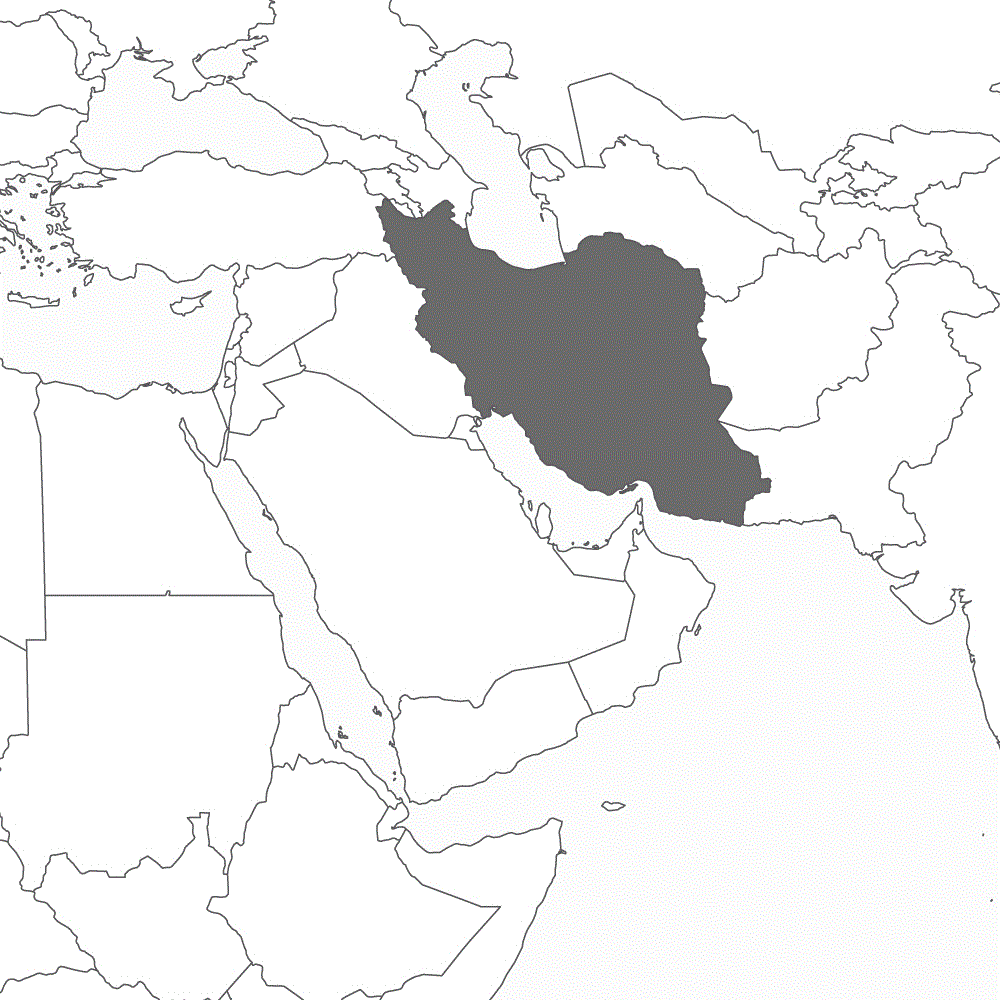False Promises
BERLIN/TEHRAN/VIENNA (Independent report) - Government advisers in Berlin are initiating plans to impose a sanctions regime on Iran. Special arbitrary measures (smart sanctions) are being discussed, which were already used against Iraq and do not stand in the way of expansionist interests of German companies. The aim of this is to prevent high financial losses amounting to billions, as well as strategic setbacks in a market where there are close economic relations combined with constraint from Tehran. After the three most powerful EU states rejected further rounds of talks on the conflict over Iran's nuclear policy, the Iranian government is mounting an offensive and is demanding negotiations with other European countries, as well as non-aligned countries. It is unknown on what grounds Berlin, Paris and London are allowed to monopolise the negotiations, says the International Atomic Energy Agency (IAEA). Despite this illegal nature of brinkmanship, the main EU states are preparing to carry out drastic measures.
The Most Vulnerable Spot
The first German proposition of implementing a sanctions regime on Iran was published last Thursday by the "Stiftung Wissenschaft und Politik (SWP)", the German Institute for International and Security Affairs. The think tank is contemplating several models, the first being a suspension in oil exports. They have to be pushed through with force (sea blockades) where they would hit Iran "where it hurts most", says the SWP.[1] It is uncertain though, how the People's Republic of China would react to such measures. China obtains a large amount of petroleum from Iran and has granted observer status to the country in the security alliance Shanghai Cooperation Organisation (SCO). In the case of a raw material embargo, the SWP predicts a sweeping rise in the price of oil and "a negative economic impact".
Losses
Furthermore, general economic sanctions that would affect many sectors of the industry were met with disapproval in leading German economic circles. "We (...) hope (...) that this issue will not be escalated" confirms the Initiative for Northern Africa and the Middle East of the Federation of German Industries (BDI) in talks with the foreign policy officials in Berlin.[2] There is real reason to worry about trade relations remaining stabile. Last year, German exports to Iran rose by 33 percent to 3.6 billion Euros and in January and February 2005, exports were actually 47 percent higher than the comparative value of the previous year. Apart from high financial losses amounting to billions, German companies are most worried about strategic setbacks in the Iranian market should Germany participate in economic arbitrary measures against Tehran. However, not only would direct investment in Iranian businesses be affected. Due to the fact that many German competitors (for example, the People's Republic of China and possibly also Russia) could reject plans for an embargo, a halt in German trade is viewed to favour these alternative suppliers.
The Realistic Option
In order to make arbitrary measures possible without damaging the expansion of interests of the German economy, the SWP has put forward the so called "smart sanctions". The Federal Government previously drafted an equivalent sanctions regime in the 1990s for Iraq which was brought up for discussion in two conferences with the United Nations, in 1999 (Bonn) and 2000 (Berlin), known as the "Berlin-Bonn-Process". By complying with German policies "90 percent of export contracts (with Iraq) were unproblematic", declared the BDI managing director of the Federal Association of German Industry, Ludolf von Wartenberg, in 2001. After a corresponding change in the UN sanctions regime in May 2002, the Federal Economic Minister assessed the prospects of German exports as "good". "Smart sanctions" are currently a possibility being considered to combine illegal drastic measures against Teheran with German economic interests. This solution would offer "the most realistic option to step up pressure against Iran" states the SWP.[3]
Assumptions
Faced with threats from the West, the Iranian government is mounting an offensive. After the three most powerful EU states rejected further rounds of talks on the conflict over Iran's nuclear policy on 31st August, Iran is prepared to negotiate with other European countries, as well as non-aligned countries, declared the chief negotiator Ali Larijani last Thursday. The non-aligned countries in particular are against the German-French-English demands. They are aiming at curtailing Tehran's vested rights of peaceful enrichment of uranium through arbitrary restrictions by a foreign country cartel. This would mean that international norms, which also apply to Iran, would only be permitted by a third party. It is not clear on what basis Berlin, Paris and London would be allowed to dominate the negotiations on Tehran's nuclear policy, say members of the International Atomic Energy Agency (IAEA) in Vienna.
Humiliation
Against the background of increasing threats to use force, Tehran is currently proceeding in mobilising the Iranian people to protest against Germany and the EU. Whilst manifestations by Iranian organisations against the USA are common, protest chanting in recent demonstrations against Berlin, Paris and London has also become frequent. German foreign policy has managed to muster opposition against the West from Iranians of neutral opinion and those who oppose the West. Strategic tension, in which Berlin plays a large part, is perceived as humiliating and challenging because it abandons national interests and is threatening Iran with military action.
The election campaign
Only a few days ago, the German Federal Chancellor declared that the German-Iranian tensions were not allowed to lead to war. The comments were said at the beginning of the election campaign and were attributed as being tactical manoeuvres. The current breakdown in negotiations was already being pondered during the peace negotiations with Tehran.
[1] Sanktionen gegen Iran. Optionen, Probleme, Perspektiven; SWP-Aktuell 36, August 2005
[2] Iran-Sanktionen bedrohen lebhafte Geschäfte; Frankfurter Allgemeine Zeitung 11.08.2005
[3] Sanktionen gegen Iran. Optionen, Probleme, Perspektiven; SWP-Aktuell 36, August 2005
